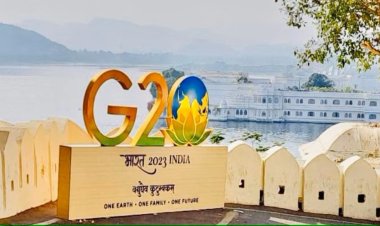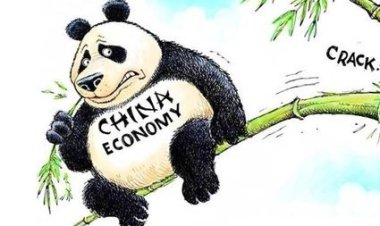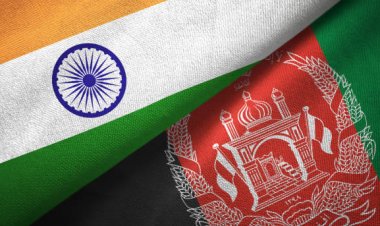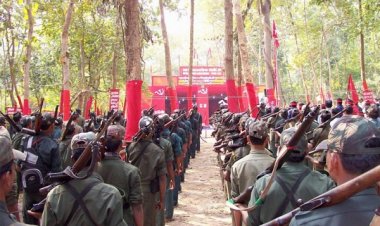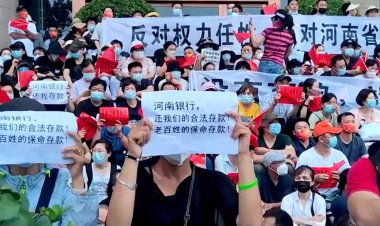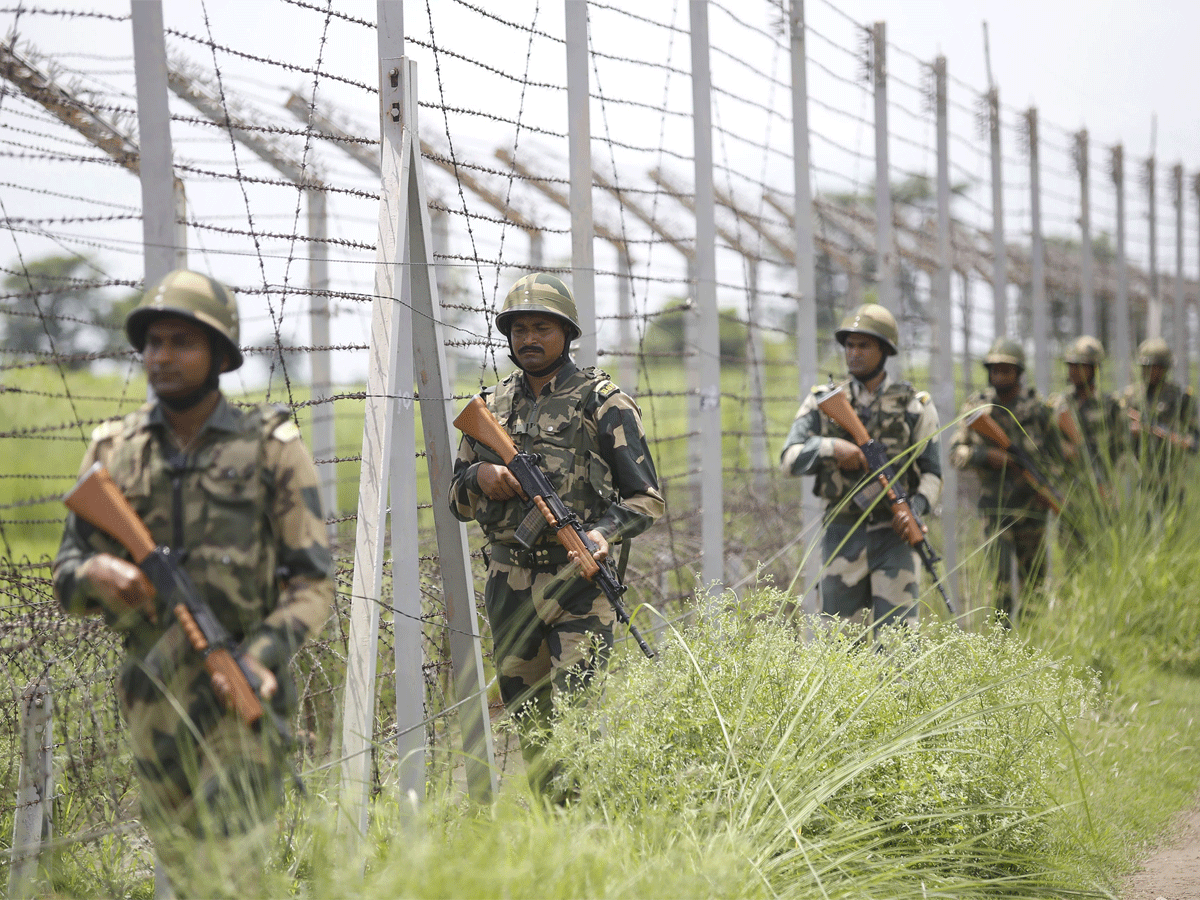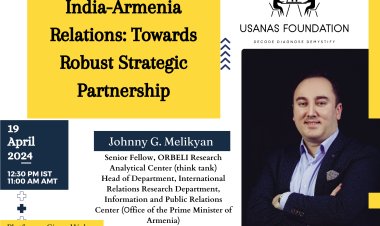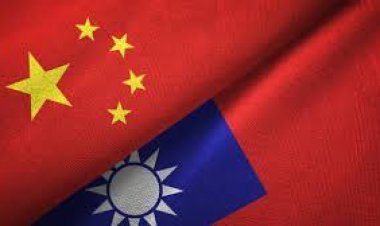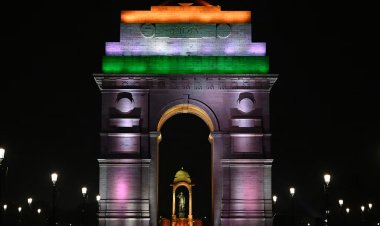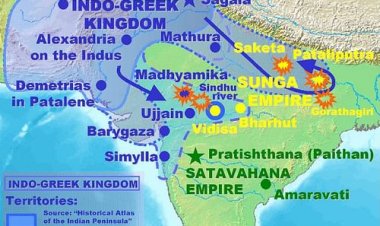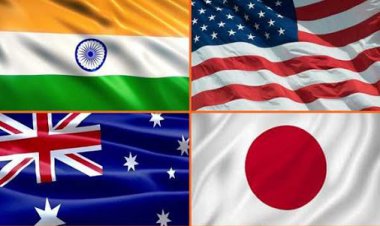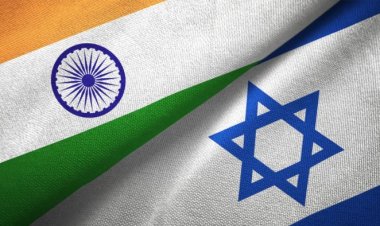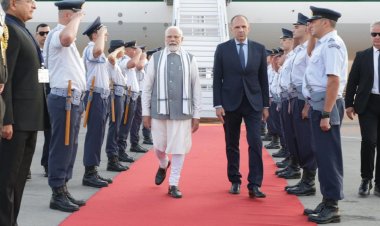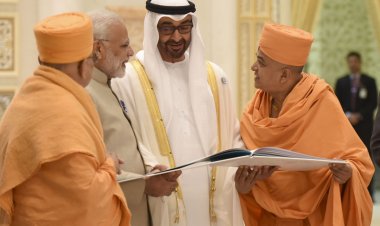Assessing India's Abrogation of Article 370 and the Journey Ahead
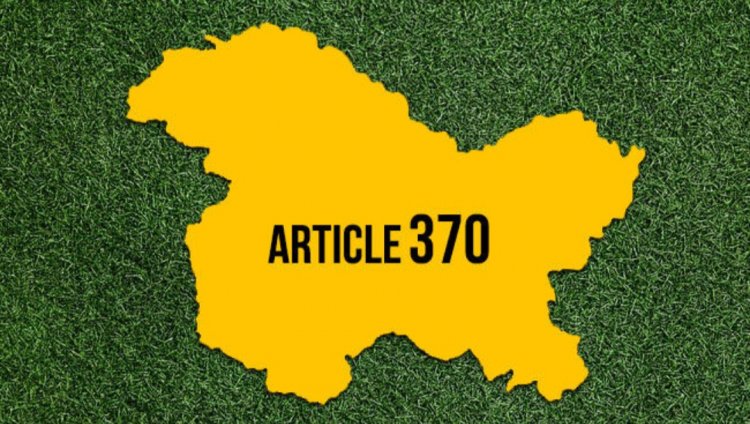
By Usanas Foudation
Last year on the 5th of August, Narendra Modi government abrogated article 370, thus fulfilling what has been not only an electoral promise of BJP but also an article of faith right from the 1950s. It is was a historic move of the Modi government, and it came as a huge surprise to everyone. With a single move,70 years of status quo of Kashmir was changed. How should we read the abrogation of Article 370? Was it just about fulfilling the promise BJP has made to itself and its voters or were there compelling security and strategic reasons behind it? How will things playout in the future? What does abrogation mean to Kashmiri people? What can be done to bridge the emotional gap between the Srinagar and Delhi? Looking at it from a wider geopolitical perspective? The panellists shared their valuable insights. The webinar panellists were. Michael Kugelman, Asia Program Deputy Director, and Senior Associate for South Asia Woodrow Wilson International Center, Washington DC. Mr.Bashir Assad, Senior Journalist from Kashmir and Mr. Abhinav Pandya, Counter-Terrorism Expert and Founder-CEO, Usanas Foundation. The moderator of the webinar was JoyeetaBasu, Editor with Sunday Guardian.
Dr. Michael Kugelman spoke about the broader geopolitical consequences that emerged from the abrogation of Article 370. Michael Kugelman divided this into three parts-First, how the international community has responded to the abrogation of Article 370, secondly, implications to India’s relationship with Pakistan and thirdly, implications to India’s relationship with China.
The reaction of the International Community
When the announcement was made on August 15, 2019, there was extensive global press coverage mostly from international analysts and human rights activists. Following weeks international community, especially the west, narrowed down their criticism. Now it was not based on the abrogation of article 370 but on the accompanying measures that came with it. For example, Washington was very critical of the detention of the political figures, critical of the security and communication lockdown. There were very few criticisms from the international community, if any, based on the abrogation of article 370, and much of the criticism regarding article 370 mainly focused on the human rights issues accompanying it. Over the past year, the focus has remained the same.
Contrary to what others argue, the Kashmir issue has been very limited. Even though Pakistan has tried to pursue this matter in all international arena, there was not much activity. The Muslim countries with exceptions like Turkey have been relatively quiet, and now the Kashmir issue has lost its activity among the international community.
Implications to India’s relationship with Pakistan
The abrogation of Article 370 did not go well with Pakistan. This lead to a situation where Pakistan tried to capitalize on the Kashmir issue in the international arena and attempted to garner support in multilateral forums. Pakistan tried to show the activities of India in Kashmir and called the international community to condemn India’s activities in Kashmir. This attempt by Pakistan was unsuccessful because Pakistan had a credibility problem ever since the discovery of Osama Bin Laden in Pakistan. It is unlikely that key western powers would be giving the benefit of the doubt to Pakistan and supporting it on the Kashmir issue. Currently, the whole world sees Kashmir the way India sees it, an internal issue, or at most a bilateral issue but does not see a necessity for international involvement. Indeed, Pakistan, with the support of China, was able to get Kashmir issue discussed several times at the UN Security Council but failed to get momentum and support. The question is once Pakistan recognizes that the strategy to galvanize the world is not working, what are they going to do next? Pakistan does not have many options. One thing to be concerned about is the possibility of encouraging militants to infiltrate across the border into Kashmir to stir up troubles and attack on Indian security forces. Dr. Michael argued that compared to the 1990s, Pakistan has taken a more restrained policy to Kashmir issue, and over the past few years, Pakistan is under immense pressure from FATF(Financial Action Task Force). FATF hearing is scheduled for October 2020, and if Pakistan is not blacklisted by FATF, Dr. Michael believed that Pakistan might return to the infiltration tactic, and this would be concerning for India. One of the justifications given by India for its decision to revocation of article 370 is to close “gateway to terror” and, in other way suggesting that by revoking article 370, India would be better empowered to prevent Pakistan from being able to use these channels to infiltrate militance into Kashmir. However, this has not proved to be accurate as data suggests that there have been cases of massive infiltration terrorism after the revocation as well.
Implications to India’s relationship with China
Dr. Michael argues that China was very displeased by the abrogation of Article 370 because it entails reorganizing Ladakh into a union territory of India, and China has made claims to Ladakh. China issued a powerful statement condemning India’s move abrogating article 370.Dr. Michael argued that the abrogation of article 370 contributed to China’s decision to stage provocations in Ladakh that began in May 2020. He suggested that there were several factors for the provocations, but article 370 played the major role. The other contributing factor was the completion of the long strategic border road by India. The border clashes between Indian and Chinese forces have been there for the years and are mainly caused by the infrastructure building, but those provocations were not as robust as the provocations that began in May. Therefore Dr. Michael argued that the abrogation of article 370 was a crucial factor leading to the border clash that happened in May.
Besides throwing light on the three perspectives, Kugelman also highlighted the loopholes in an efficient communication by the Indian government and said that the Indian government could have done a better job in messaging on their decision on Article 370. Media picks up issues that can potentially sell well. He said that media would undoubtedly pick up on reports that the world’s largest democracy is locking down and restricting communications. The optics for the people not very well versed in history; they start with the present tense. Most of them would not think about what happened to Kashmiri Pandits. The reporting on Kashmir is just the case of Western media reporting on whatever they see on the ground and what they think can be picked up by the readers and audience.
Responding to a question on America’s stand on Kashmir in case Joe Biden comes to power, he said that it is very unlikely that Biden is going to take a sturdy stand on the issue against India. “When it comes to US policy towards India, there is clear bipartisan support in favour of strong India-US ties. He said that he does not think that Biden would come down hard on India, criticize for the abrogation of 370, or will have a tougher stand on India. Some of Biden’s team members are progressive and leftist, and a couple of them have been associated with Bernie Sanders as well. So perhaps, he would be a bit more critical of India than Trump. But it would not be significant as there has been consensus for a few decades that in the USA that India is an important partner. There is also a bipartisan consensus on China, which is one of the major reasons making India a key partner to the US. The USA plans to take on China through the Indo-Pacific strategy, of which India is a key partner. We had the messaging from Biden’s campaign as well, where he has been expressing praiseworthy and complimentary sentiments for India India”, he added.
Mr.Abhinavspoke about the rationale of the decision taken by Delhi. Mr.Abhinav first discussed what motivated the Modi government to abrogate article 370 and argued there were compelling strategic and security reasons that made it necessary for India to abrogate article 370.
Motivations for the abrogation of article 370
Mr. Abhinav was in Kashmir a year before the abrogation of article 370 researching for his book “radicalization in India: an exploration”. Kashmir was his case study.
First, the increase in radical militants. The LOC trade that began in the first decade of 2000 has led to the emergence of terror financing complex by 2008 in Kashmir. The radical militants began using middle east tactics, intifada tactics based on the theory of “aggressive non-violence.”
Second, ideological and sentimental transformation among the public. The rise of Salafism and the idea to bring back the Caliphate was on the rise. Zakir Musa, a celebrity militant, publicly announced that he wants to bring back Caliphate. His graffiti isstill there in high schools and middle schools. BurhanWani, in his last video, called for the cause of Caliphate.
Third, the increase in violent protests.If we look at 2008, Amarnath land row incident, and 2016 post-BurhanWani neutralization disturbance, the valley saw brutal protests that led to several deaths. The first two factors mentioned above led to the strengthening of transnational terrorist organizations like Al-Qaida and ISIS, and they began to establish deep networks in Kashmir. The separatist movement in Kashmir is now entirely taken over by the Jihadist forces.
Fourth, the abrogation of article 370 is not against Kashmiri identity, and,on the contrary,it is infavor of Kashmiri identity. Kashmiri identity is primarily rooted in Sufi Islam. It was diverse, tolerant, and liberal. This environment was gradually destroyed, and Delhi is also partially responsible for this destruction. Radical Islamist organizations like Jamaat-i-Islami began their operations in Kashmir back in the 1940s. It was in 1970s that they confirmed their roots in Kashmir when Delhi backed them as a counter to Sheikh AbdullahSahab (the leader of secular National Conference) and his autonomy ambitions.
Fifth, mainstream institutions were compromised. Kashmir government institutions were gradually becoming part of terror infrastructure, which was financed and sponsored by Pakistan. The extent of terror support went to a point where Chief Ministers of Kashmir sheltered terrorists, used government vehicles to move terrorists and their weapons and other necessities. It was the incompetence of the government to stop these terrorists and their supporters. Most of these people are political prisoners today, soliciting international support with no answer to the deaths they have caused. If the intelligence and investigation agencies had been efficient and Delhi had shown political will, these people would have been facing severe charges in terror financing, hawala transactions, drug smuggling, weapons smuggling, corruption and facilitating terrorist activities.
Delhi had two choices at hand. First, leave Kashmir to Jihadists or, second, integrate Kashmir with mainstream India. Delhi chose the latter. It was more than the BJP election promise. Any other government would have done the same. Article 370 protected terrorists, and it was necessary for India as a matter of national security to abrogate it.
Situation After Article 370.
Abrogation of article 370 was a necessity, but not the end. It was only a beginning. Mr. Abhinav here explained the mistakes that the government has made after the abrogation of article 370 and the steps to take in the future.
First, Delhi is making the 1970s mistake again. Delhi is giving compromises to the political prisoners and not arresting them for the crimes they have committed. They should be inside the NIA interrogation room for their culpability in terrorist and radicalization activities.
Second, the lack of governance and outreach. We have to weigh and measure what we want in the future. Delhi has not paid enough attention to good governance in Kashmir after the abrogation of article 370. The state was left to bureaucracy, and the system has become extremely bureaucratic. There is a lack of accessibility and bureaucratic arrogance, corruption and apathy know no bounds. The abrogation of article 370 was only a beginning and should have been followed by good governance and security measures.
Third, if we really want to integrate Kashmir in an ideological, sentimental manner, we need an out of box thinking. We need to establish a firm outreach with the people of the Kashmir. Establish contact with the youth, make an attempt to engage them, win their hearts and minds and address the challenges of alienation and radicalization that fuels terrorist recruitment.
Fourth, militancy in Kashmir will undergo massive change. Pakistan has realized that traditional militancy, Hizbul Mujahidin and Hurriyat, will not be useful to them in the future. Therefore Pakistan is going to empower and strengthen foreign terrorist groups like Jaish-e-Mohammed and Lashkar-e-Taiba. Taliban has the same Deoband Islamic ideology as Jaish-e-Mohammed and is likely to support Jaish in the future.
Fifth, Turkey is going to emerge as an important factor in Kashmir. Turkey has an extensive soft power outreach to the Muslims in Kashmir. Turkey acts on multiple fronts. It captures the hearts and minds of the youth in Kashmir with its soft power. The dominant Hindu nationalist environment aids Turkey’s efforts in gathering support among Muslims in Kashmir and India. Turkey has emerged as a drone superpower. There were official reports which said that militancy in Kashmir could get easy access to drones from Turkey. In such a case, dealing with militancy will be a tough challenge.
Integrating Kashmiris with the rest of India
Mr. Abhinav argued that integrating Kashmiris with the rest of India is a difficult task and would require extensive outreach to the people.
First, this outreach should not only be formal. It has to be informal. Officers posted in Kashmir can start reaching out to people, talking to the youth of Kashmir and convincing them and explaining to them what are the benefits of the abrogation of article 370 and what can be the new vision for the Kashmir.
Second, improved governance- Currently, governance in Kashmir is in bad shape. The focus has to be on providing essential utilities like water and electricity and make life comfortable by showing the perceptible change in infrastructure and governance at the grassroots level. The government officials will have to be polite and friendly towards the people. Big development projects can be taken up later after winning over the trust of the people and starting the political process, as now they are unnecessarily generating fears of demographic change.
Third, people should be told the truth at all costs. For a long time, intelligence agencies in Kashmir have been dominant, and for some tactical gains, they empowered separatist or anti-national people. People should be told that if they are in favor of democratic, multi-cultural, tolerant, and liberal India, then there is a warm embrace for them, but if they are for religious extremism, there will be harsh actions against them.
Fourth, create jobs. Unemployment is a significant problem in Kashmir, and most of the people are dependent on government jobs. For the youth of Kashmir, there are two role-models. They see a militant with a gun and a security official with a gun. Hence they crave for brute power in life even if it comes through joining the ranks of militants. Some of the wiser ones end up with a position in government. We need to change this mindset. Kashmiri youth should be allowed to explore their talent in various avenues; most importantly, they should be encouraged to explore their entrepreneurial talents.
Fifth, there is no need to demonize Kashmiris in national media. The nationalist mainstream media is very biased and extremist while covering Kashmir. The approach has to be nuanced. We are dealing with a state which has been going through conflict for the past 30 years. So one can imagine the trauma, the stress, and collective psychological depression which the state is going through. Therefore, it requires special treatment. All the actors in the society, the politicians, the media, academia, the human rights activists, have to realize that they have to be responsible, accountable in the roles in which they are playing and they should not misguide Kashmiris.
China and Turkeys involvement
Sultan Erdogan has an apparent desire to restore the defacto Caliphate and claim the leadership of ummah. Sultan Erdogan knows that in the middle eastern world, he would face major opposition from the Arab countries who were custodians of the holy sites of Islam and dominant players in the middle east.
However, in South Asia, there is a huge Muslim population without any opposition to Turkey. Additionally, India had traditional relations with Turkey and the Ottoman Empire. The 1920 Khilafat movement was launched by Mahatma Gandhi to restore the caliphate, and after the revolt of 1857, a large part of Muslim nobility migrated to Turkey for various reasons. President Erdogan uses these historical ties to win the support of Muslims in South Asia. The best way to win their support is to raise the Kashmir issue. Turkey offers scholarships to Kashmiri youth, and Kashmiri clerics are invited to Turkey. Turkey recently had a meeting with Jamaat-i-Islamichief ofPoK (Pak-Occupied Kashmir) and invited him to Turkey. There are chances that turkey would support the militant organizations and Islamist groups in Indian administered Kashmir. Turkey, unlike Iran and Saudi, is not playing upon differences between the Shia and Sunni sects. They plan to create a unified Islamic identity in Kashmir and rest of India, and this would be extremely difficult for India to handle.
China has always been active in Kashmir. During the proxy war in Kashmir between India and Pakistan, China played an important role in terms of motivating Pakistan. The idea is to keep India busy in Kashmir and with other local conflicts. While India is busy with Kashmir and local conflicts, China aims to control the Indian ocean, empowering its naval forces and encircling India with different naval bases. China has a major stake in the Indian Ocean, and the Indian navy has always had firm control over the Indian ocean. China feels that unless it grabs the Indian ocean and converts it to a Chinese lake, it cannot have domination over India.
China receives all its intelligence from Pakistani proxies working in the Kashmir. After the abrogation of article 370, China became much more active in Kashmir. They started meeting with the terrorist leaders in the terror training camps in PoK.
Mr.Bashir Assad explained the abrogation of article 370, what motivated it, and the failure of the state after abrogation from a Kashmiri perspective.
Motivations for the abrogation of article 370
First, the abrogation of article 370 was not purely security. Mr. Assad disagreed with Mr. Abhinav on the point that abrogation was necessary because of security reasons. He stated that BJPs party ideology played a major role in the decision to abrogate article 370, and therefore there were significant political incentives for the abrogation. Mr. Assad argued that security was a factor, but it was not the main factor and was instead used as an explanation to sell it to parliament and western media.
Second, it was in 2008 uprising, the Amarnath land row incident, that the Delhi decided that it was time to change the situation in Kashmir. 2008 incident provided material to the people in Delhi that separatism in Kashmir has to be contained. 2008 incident was celebrated by the Kashmiri people and the politicians. Mr. Assad believes that this was when the transition in thought process occurred for the people in Delhi. There were discussions among policymakers and think tanks to avoid further drifting away of Kashmir from India. 2008 incident that provided the basis for polarization in Kashmir. After the 2008 incident, separatism was the new normal in Kashmir, and the irrational political narratives were mainstream. This actually compelled Delhi to go for such a drastic measure.
Situation After Article 370.
First, Pakistan and Kashmiri diaspora. From August 2019 to January 2020, there was not a single militant attack on the army or the security forces because Pakistan told the militant groups to maintain a low profile. Instead, Pakistan mobilized the Kashmiri diaspora in the west, and these people kept the Kashmir issue burning in international media. It allowed Pakistan to argue and sell to western media that this was the uprising of the indigenous people against the state. Mr. Assad argued that the separatist narrative exists because of the Kashmiri diaspora. He also argued that Pakistan would do everything to disregard and protest against the abrogation.
Second, the abrogation of article 370 provided a breather for Pakistan. Pakistan has altered their methods of engagement from militancy to using Kashmiri diaspora to gather support from countries. This provided them a breather with respect accountability and a possible answer for the FTAP. It released the pressure provided by the FTAP.
Third, the abrogation of article 370 will not stop terrorism and would instead revive terrorism. If we look at the statistics and the formation of the militant organizations in Kashmir, some 4-5 new organizations came into existence since and three inactive organizations have revived. The statistics show that local youth are joining the militant organizations for the past one year at alarming levels. The anger and the frustrations of the radicalized groups in Kashmir remain unaddressed. Therefore, abrogation without outreach remains just a political move and would not cause an actual security change in Kashmir.
Fourth, outreach, good governance, and investment opportunities are lost. People in Kashmir expected some sort of investment to boost the economy of the region. Delhi has failed to provide this. There have been counter-arguments that Delhi failed to invest because of the abrogation and transition stage and later due to lockdown caused by COVID-19. However, Mr. Assad believes that if Delhi can issue controversial orders during the times of pandemic, how can they justify that it was the pandemic which disabled investment opportunities. Kashmir expected good governance and better outreach by India. However, corruption is still rampant, and the administration is stagnant. There is no organization or a person to listen to the grievances of the people. People expected Delhi to create a channel where Kashmiri people’s grievances could be heard. Delhi was not able to cover the gap caused by the trust deficit.
The opinions expressed in the webinar belong to the panellists and not necessarily to the Usanas Foundation.

